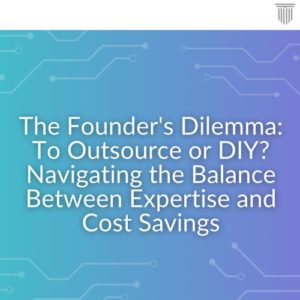Non-dilutive financing can be a great option for smaller businesses. Typically, these smaller enterprises will raise capital through debt or equity financing, but what are some key differences between these two methods? Let’s first take a look at non-dilutive financing.
The idea of non-dilutive financing is to raise capital through debt without losing ownership in your business. Taking on debt can lead to high interest rates, but this could create benefits in the long-term. This debt is also tax-deductible which can help alleviate some of the high interest costs. By utilizing non-dilutive financing early, a company can hold off and sell equity at a later stage to obtain a better value for its shares.Hi everyone, I am reporting the 31st August AUM as $83.4M….a $5.6M increase from 31st July Hi everyone, I am reporting the 31st August AUM as $83.4M….a $5.6M increase from 31st July.
Taking on debt can lead to high interest rates, but this could create benefits in the long-term.
Start-ups usually can’t expect high prices for an equity stake in their company, so they would have to offer shares at low prices. The problem with these early equity financing deals is that a newer company is likely to grow in value. Significant growth can happen in the first year! This growth is the reason that putting off equity financing until a later stage can be more beneficial, as shares can be sold at a higher price. This points to non-dilutive financing being the better option at the beginning of a company’s life, but how has COVID-19 impacted this option?
COVID-19 has shook the economy world-wide, making for difficult times for all companies especially those of a smaller size. One of the biggest changes from this pandemic has been the tightening of liquidity. Businesses and individuals have been holding their capital more closely to survive through this pandemic. This has made it a lot more difficult for start-ups and entrepreneurs to obtain non-dilutive financing. This doesn’t mean that there are no opportunities to receive funding! In light of these events, businesses have changed their processes in ways to directly aid in the fight against COVID-19. A huge example is the health-related businesses – especially those that are manufacturing PPE. Companies are looking for equipment to help protect their workers and limit the spread of the corona virus. These health industries are the ones that are still receiving funding and it’s one of the reasons we’re seeing businesses adapt. There have been lumber mills converting their processing plants to make N95 masks and electronic companies adjusting their manufacturing lines to build ventilators. So even though times are challenging, non-dilutive funding is still available with some hurdles to overcome.
Businesses have changed their processes in ways to directly aid in the fight against COVID-19 .
For the most part, the same rules apply for companies looking to obtain debt financing. Is their business model strong? This is especially important in the current economic conditions. Another factor that will be important is determining whether the company can maintain their loan payments and still produce consistent cash flows. More than ever, a company’s reserves will a point of interest to see just how long they can operate. With the likely chance of COVID-19 having a second wave in the future, the company’s assets on hand become even more important.
Disclaimer: Any views or opinions are not intended to malign any religion, ethnic group, club, organization, company, or individual. All content provided on this blog is for informational purposes only.







